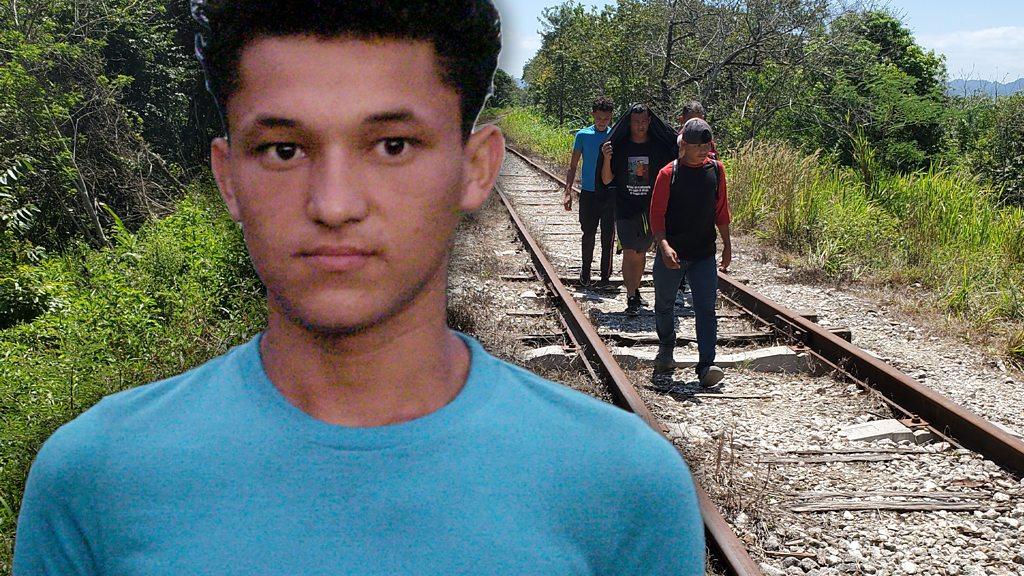America's struggle with racism, as told by immigrants
- Published
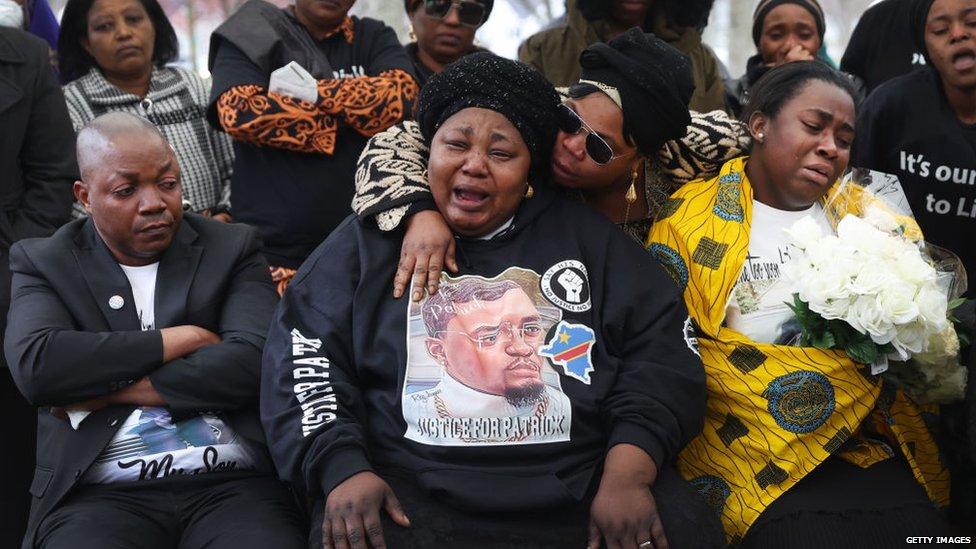
Dorcas Lyoya (centre), the mother of Patrick Lyoya, grieves at her son's funeral after he was shot dead by a Michigan police officer during a routine traffic stop
The 2020 murder of a black man, George Floyd, by police in Minneapolis shone a spotlight on racism in America. It also made black immigrants wonder if America's ideals of freedom and opportunity could be realised.
Joseph Edghill, 65, has lived in the US for nearly half a century, but the past few years have felt very different to him.
Hailing from Trinidad & Tobago, he followed his mother to America at age 17 to attend college and make a living in a place he thought of as a land of prosperity.
He remembers his homeland as a mixture of races, where school and other aspects of daily life were well integrated.
But in America, it seemed, "it was quite a difference. The whole idea of race was in the news and you'd hear about it so frequently".
Early on, he consciously avoided engaging in it.
"I wanted to succeed in spite of race," he told the BBC. "If somebody else had issues with my race, that was their problem."
Then, on 25 May 2020, George Floyd - an unarmed African American - was murdered by police in Minnesota.
Footage from the incident, in which an officer knelt on Floyd's neck for more than nine minutes, stunned the world and drew millions of protesters - including Mr Edghill - onto the streets.
"That was the first time I ever went out and protested anything," he said. "Floyd was the first time I felt like that could be me."
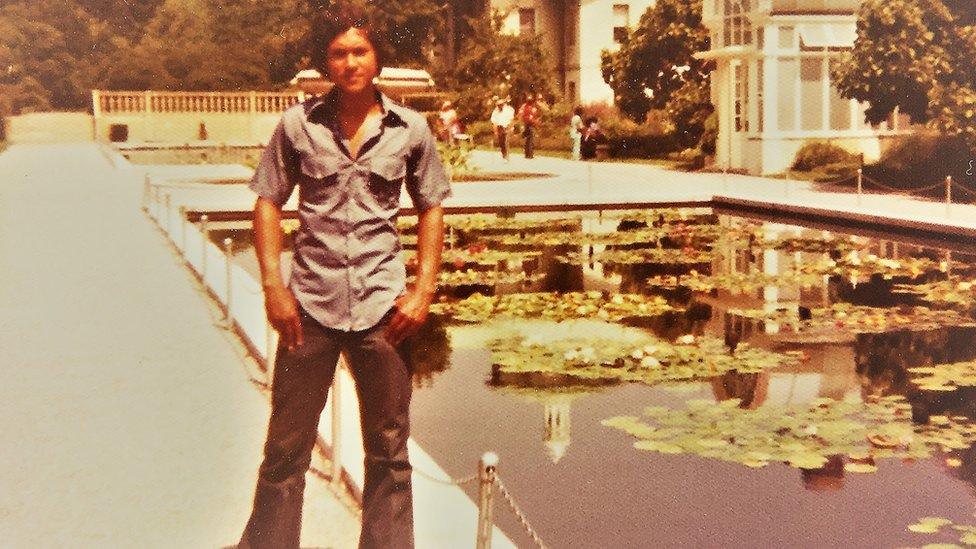
Joseph Edghill moved to the US from Trinidad & Tobago in 1974
Joseph is part of a growing population of black immigrants in America.
Although the majority of black Americans are the descendants of enslaved people brought to the US, one in 10 - close to five million in total - were not born in the US but came here to find a better life, according to the latest data from Pew Research Center.
US Census Bureau projections suggest the black immigrant population will more than double by 2060.
And while many are happy with their adoptive home, Floyd's death and other incidents of violence against black people have shaken the faith of some in the ideals that America represents.
The death of Patrick Lyoya, a 26-year-old who escaped to the US from the Democratic Republic of Congo with his family nearly eight years ago, is another recent case that has struck a chord.
Lyoya was fatally shot in the back of the head by a police officer in Grand Rapids, Michigan, during a routine traffic stop last month.
Footage released from the incident showed Lyoya and a police officer wrestling on the ground. Police said the officer fired his Taser twice, but failed to hit Lyoya. Footage showed the officer demanding Lyoya "let go of the Taser" several times before firing the fatal shot.
Reacting to video of the encounter, his parents expressed shock that their first-born had been "killed like an animal" in their adopted home, which was supposed to have been a"safe haven".
Peter Lyoya added that he "didn't know" law enforcement could commit an "execution". Representatives for the police department have rejected the characterisation, saying the officer "has the legal right to protect themselves and community in a volatile dangerous situation such as this".
But to some, Lyoya's death is a worst-case scenario in how black- and brown-skinned immigrants experience life in America.
Silvia Holt said she understood what it was like to be in a new country and afraid of the police.
Her migrant worker parents left impoverished conditions in Guadalajara, Mexico, and smuggled her across the border into California at nine months old. She became a citizen at age 12.
Settling in rural Oroville, Ms Holt, now 43, would accompany her parents through gruelling agricultural work.
"Working in the fields, my mum would always advise me never to run - because then you become suspicious," she said.
"The people that ran away were the ones that would get deported, caught, bruised up."
The father of Ms Holt's son, Timothy, is African American, and she sees his fear, like hers, of the police, she told BBC.
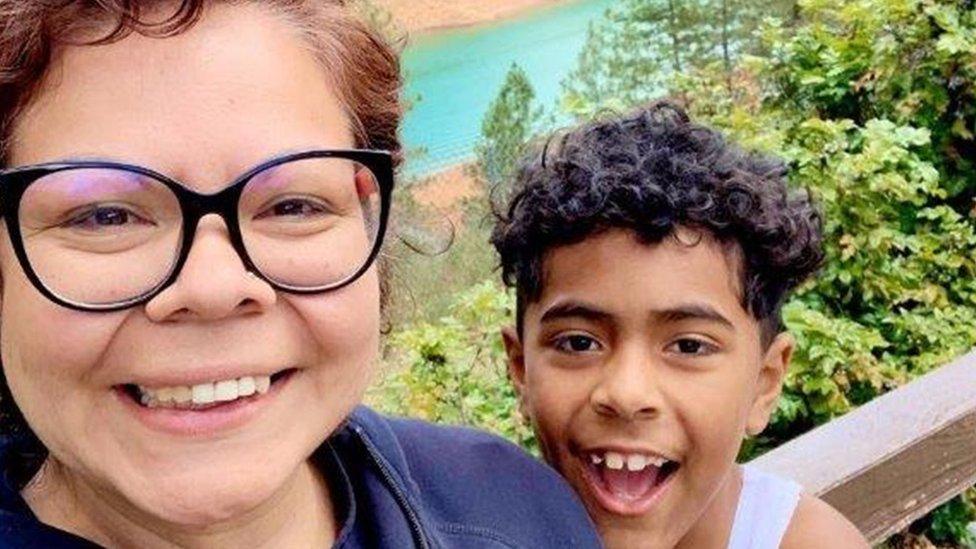
Silvia Holt speaks to her son Timmy about taking lessons from the "ugliness" in society
When they were stopped over a traffic issue when he was five years old, he asked: "Is the policeman going to hurt me?"
Lyoya was a refugee with an obvious language barrier who might not have known any better in the moment than to run away, Ms Holt said.
"It's mind blowing that a traffic stop ends in a person dying."
The police officer who shot Lyoya is currently on paid administrative leave, and local prosecutors are set to soon issue a ruling on whether he should be fired and charged with a crime.
Some black immigrants are feeling especially targeted in the wake of a mass shooting this month in Buffalo, New York.
The gunman - a white teenager radicalised over the internet - travelled some 200 miles from his home and targeted a supermarket in a predominantly black area. Ten of his victims were black.
Ahead of his rampage, the gunman referenced "white replacement" conspiracy theories and expressed resentment for immigrants and minority groups in online posts.
For Benjamin Anom, a military veteran who has been treated for post-traumatic stress disorder, the events in Buffalo were "a new PTSD".
"It scared me," he said. "It could have been anywhere. A group of people looking at another group like they were aliens to society… It goes beyond hate".
Mr Anom moved to the US from Ghana in 2000 with his wife Lily.
Enlisting in the US Army shortly after his arrival, he served in Iraq and that led to a fast-tracked citizenship process under the Bush administration.
The 51-year-old now has three children, four graduate degrees in various disciplines and a doctorate in biomedical ethics.
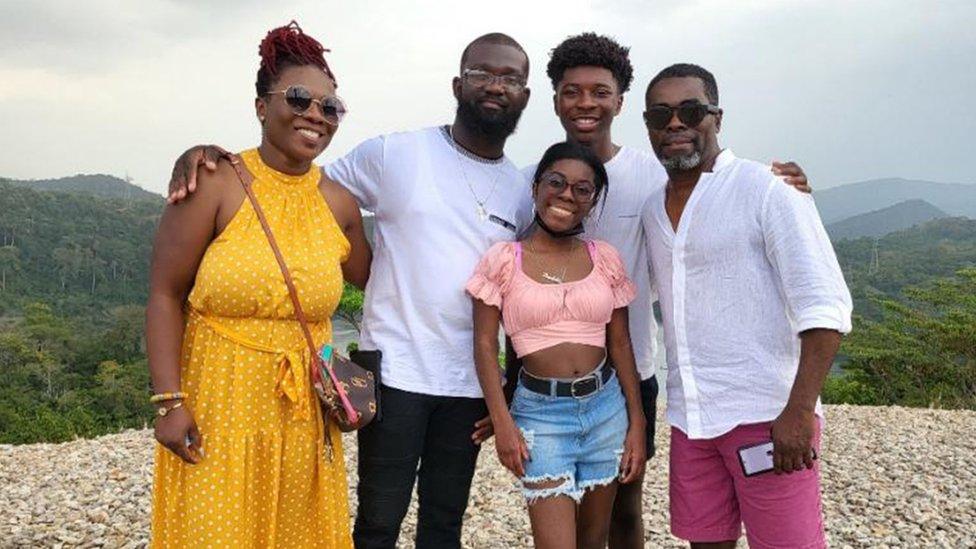
Benjamin Anom (extreme right) with his wife and three children
That makes him grateful to the country, for him, the "American dream" - working hard and finding success regardless of one's background - remains intact.
"It would not have been easy doing all that in Ghana, with a family and a job," he said. "In most parts of Africa, you inherit the successes of your parents."
But for people like him who pursue their dreams here, there is a need to be hyper-vigilant to "avoid the scenarios we see on TV".
No matter whether he is going on a short walk or an hours-long road trip, he filters through a daily mental checklist.
He rehearses with his kids how they should behave during any given police interaction.
"It's almost a full-time job," he said. "But the precautions are not always enough."
Some years ago, Mr Anom got lost driving alone at night from Texas to Kansas, and pulled over to ask for help. Leaving the high beams of his jeep switched on, he honked at a nearby house from what he believed to be an unthreatening distance and then stood by his vehicle.
The homeowner aimed a gun at him and ordered his hands up - until he mentioned he was a lost soldier in need of directions.
"If you had not mentioned that you were a soldier, I was going to pop you," he claims the man said.
Mr Anom said he typically avoids labelling people as "racist" and gives people the benefit of the doubt whenever possible.
But, from Floyd to Lyoya to Buffalo, he said he is not naïve about the level of distrust and hate festering in American society.
"This is how this place has been for a long time," he said.
Related topics
- Published8 August 2022
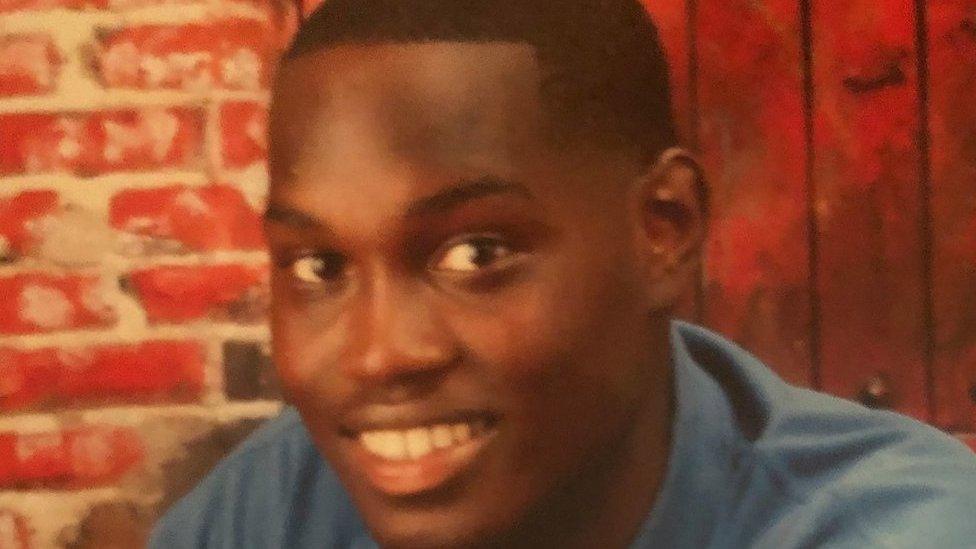
- Published22 July 2021
- Published17 March 2021
